This is the code I am using to handle a GET request in my "Works Orders" controller:
// GET: api/WorksOrders/5
/// <summary>
/// Fetches the Works Order with corresponding ID (pkOrderItemID)
/// </summary>
[Authorize]
public OrderItem Get(int id)
{
using (var entities = new customappsEntities())
{
return entities.OrderItems.FirstOrDefault(e => e.pkOrderItemID == id);
}
}
When this is run I get this error message in the JSON response:
"Error getting value from 'OrderItemDepartments' on 'System.Data.Entity.DynamicProxies.OrderItem_501562E50E13B847D4A87F7F2DEC7C8CEDAF127355CB4FC30E12653275CE6412'.",
I can fix this by adding
entities.Configuration.ProxyCreationEnabled = false;
This returns the entire table but has a set of empty arrays at the bottom for example the JSON formatted response looks like:
{
"$id": "1",
"pkOrderItemID": 271,
"StartedOn": "2015-01-01T00:00:00",
"CompletedOn": "2014-10-15T00:00:00",
"Costs": [],
"Dispatches": []
}
The arrays appear to be foreign key relationships in the database and I believe they return empty because it is stuck in a self-referencing loop (I was able to get that error message a few times but I haven't been able to recreate it since). I've tried adding
GlobalConfiguration.Configuration.Formatters.JsonFormatter.SerializerSettings.ReferenceLoopHandling = ReferenceLoopHandling.Ignore;
From: Self referencing loop detected - Getting back data from WebApi to the browser
And many other solutions from the same or similar threads but it didn't solve the issue. All of my data classes are auto-generated by Entity Framework so I can't modify them, maybe this is the wrong way to have a web API set up?
Any help to figure out why the arrays return empty will be appreciated. Thank you.
Update
Here's a screenshot of the DataModel Diagram to show the fk relationship
